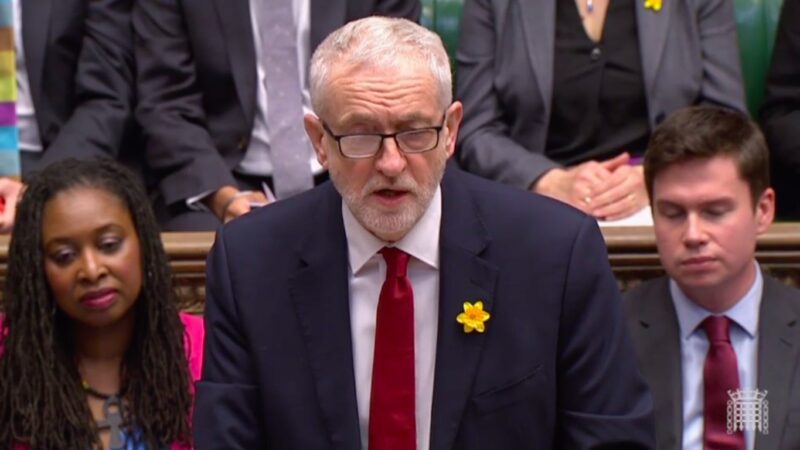
We “broadly agree” with the plan put forward by the government on Covid-19, Jeremy Corbyn declared at the opening of a Prime Minister’s Questions that was unsurprisingly devoted in large part to the virus. But the issue is NHS capacity. What additional funding will the government be providing for our health service in light of the coronavirus? Boris Johnson shrugged off the question, saying only that the NHS was being afforded “record levels” of funding from this Tory government, before moving on to make his own policy announcement.
He declared that people who self-isolate will be entitled to statutory sick pay from the first day, instead of having to wait until the fourth day as the rules currently stand. But what about those not eligible for any statutory sick pay? Corbyn pointed out that many on low wages don’t qualify for sick pay at all, and asked the PM to clarify that this new announcement would apply to everyone. The answer seemed to be ‘no’, as the PM replied: “Some of them will be entitled, others will be entitled through the existing system such as universal credit.” But as Corbyn highlighted, if you claim universal credit, you face a five-week wait for any benefits. Despite the announcement by Johnson today, many will be left in financial difficulty if they follow the advice of health professionals.
Corbyn moved swiftly on to the bullying allegations coming out of the Home Office, asking: “Will he now commit to an independent investigation into the Home Secretary’s conduct?” The response can only be described as a glowing tribute to Priti Patel from Johnson, who said that she was doing an “outstanding job” and listed her various achievements. The Labour leader cited the PM’s own foreword to the ministers’ code of conduct, and said that the government cannot be “judge and jury” over its own behaviour. We have a “part-time PM” who is “determined to cover up for bullies”, Corbyn concluded. Johnson told the House that he wouldn’t take lessons from a party “where female MPs were bullied so badly in a manner of antisemitism that they actually left the party”.
The fact that Corbyn didn’t devote more of the questions session today to Patel’s conduct could be because it is a bit of an awkward issue for the Labour leader to broach just now. Besides the accusations hurled by Johnson of bullying taking place within the Labour Party, it’s also made more difficult by the Labour leader’s recent nomination of John Bercow for a peerage – despite accusations of bullying from staff. The attack on the Tories for their handling of this also represents an interesting role reversal for the two main parties. The Tories are known to be defenders of the establishment and often seen as the ‘safe pair of hands’, usually aligning with the approach of the civil service. But this latest bullying story and Dominic Cummings’ ongoing campaign to shake up the civil service means the Conservatives now stand in opposition to public servants. It is odd to think that less than a year ago, anonymous briefings from civil servants saw Corbyn accused of being “too frail” to take power. It is this dynamic that makes the Patel row difficult for a radical Labour Party.




More from LabourList
Nudification apps facilitate digital sexual assault – and they should be banned
Diane Abbott suspended from Labour after defending racism comments
Labour campaign groups join forces to call for reinstatement of MPs